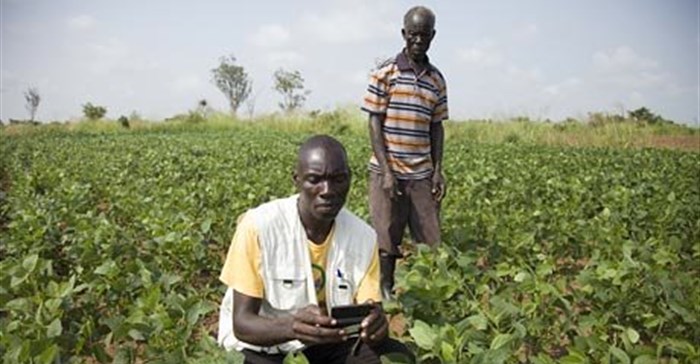
Top stories






More news







Logistics & Transport
Uganda plans new rail link to Tanzania for mineral export boost












"Millions of small family farmers need technical and financial assistance to be more resilient and adapt to the impacts of climate change. They must be able to stay on their land, produce their own food and also have access to markets," he said in remarks at the G20 agricultural ministers meeting.
The FAO director-general argued that the world's rural areas will be the key battleground in the push to achieve the 2030 sustainable development agenda since it is there that poverty and hunger are most concentrated.
At the same time, most of the increases in agricultural yields required to feed a world population set to surpass nine billion by 2050 will have to take place in these same regions, and will greatly depend on small family farmers, according to FAO studies.
"Information and Communication Technologies (ICT) can have a profound impact on the efficiency, resilience, and inclusion of poor family farmers," Graziano da Silva said. This is why FAO is pushing ahead with a digital strategy that aims to support the world's most vulnerable through knowledge sharing and bottom-up learning.
An initial thrust under that effort that is already bearing fruit is the Organisation's work with Google to make high-resolution satellite data an everyday tool in monitoring and managing natural resources, promote sustainable agriculture, and strengthen food security.
FAO is also looking at tech-based options for providing small farmers with microclimate forecasts and is engaging with the World Meteorological Organization (WMO) to brainstorm additional ways to improve weather forecasts for farmers. These efforts would be aimed "particularly at the 70 countries that do not have national meteorological services established," Graziano da Silva said, noting that this is a major priority.
The FAO director-general called for support so that meteorological data, available at a global level, can be translated at a local level in order to benefit farmers, pastoralists, and fisherfolks.
And at the request of the G20, FAO is partnering with the International Food Policy Research Institute (IFPRI) and the Organisation for Economic Cooperation and Development (OECD) to assess existing agricultural information and communications applications and platforms in order to provide the G20 with guidance on how they can be improved.
In his remarks, FAO's director-general also commended the G20 for continuing to focus on the critical issue of water scarcity and antimicrobial resistance.
FAO estimates that almost 2.1 billion people live in the dry areas of the world and that some 260 million people, most of them in rural areas, lack access to safe drinking water, "although water is a human right," Graziano da Silva said.
He invited G20 members to participate in the Global Framework for Water Scarcity which FAO and partners launched during the recent UN Climate Conference in Marrakech. The strategy is intended to help countries and communities improve the efficiency of their water use and increase their resilience to drought stresses.
Noting that antimicrobial resistance (AMR) is another priority for the G20, he urged the group to continue to support FAO's efforts to promote responsible use of antibiotics in the agricultural sector to prevent the spread of AMR.